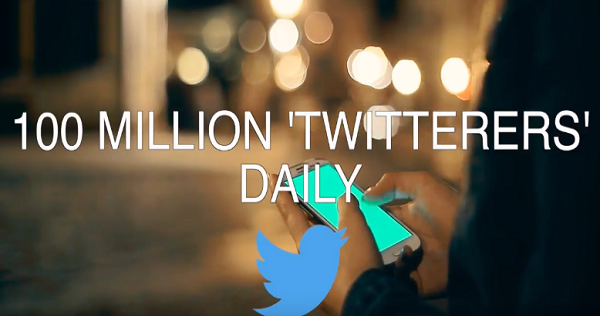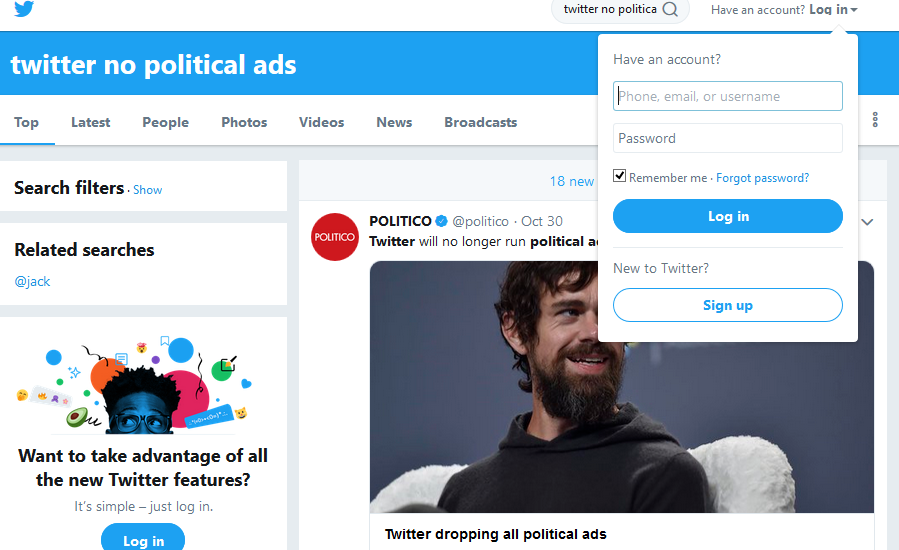
Isolated and vulnerable on an obscure south Pacific island populated by Tom Hanks and a witty volleyball, the world’s largest social network continues to bind itself in a sinuous tangle of intrigue detached from the natural order of life. With the November election right around the corner, it comes down to integrity, which is completely absent from a digital journalistic endeavor plagued by major credibility issues. The sloppy news reporting tactics of partisan politics leads to an unfortunate miscarriage of justice, and banishes objectivity to an icy Siberian gulag allowing the shallow waters of subjectivity to replace fact with whatever is trending among the new electronic order continuously redefining the younger generations.
Twitter has finally bought into the reality that there is indeed a line drawn in the sand of how news is processed within the social network constructs between occasional instances of corporate dogma leaking information through software bots, and a diabolical plan unleashed to enact societal engineering.
Company CEO and self-apologizing leftist Jack Dorsey is publicly divorcing the online community from further ridicule and the unsavory universal perception of existing as an overbearing billion dollar cash cow instilling a collective will at any time and in any form at the expense of the user. Twitter has officially put an end to the practice of the social network selling and posting advertisements of political nature. Dorsey announced the decision in a series of tweets.
“A political message earns reach when people decide to follow an account or retweet. Paying for reach removes that decision, forcing highly optimized and targeted political messages on people. We believe this decision should not be compromised by money,” he said. “While internet advertising is incredibly powerful and very effective for commercial advertisers, that power brings significant risks to politics.”
The move comes in the aftermath of the leader of the tweeting empire divulging to reporters that corporate culture is indeed predominately left of center, but claiming that political leanings were not responsible for the limiting of conservative content within the electronic nexus. On the other end of the spectrum, and in another quadrant of the galaxy accessible only by a Feynman influenced wormhole shimmering an infinite rainbow effulgence, the human magnet for scandal and government sanctions, Mark Zuckerberg, continues to stagnate in a pile of retched detritus and excels in the deconstruction of reality.

The official Twitter no political domain page and CEO Jack Dorsey resembles an 1890’s prospector, or for that matter Tom Hanks in Lost.
F***book appeals to the lowest common denominator of vendors in selling space to host misleading political advertisements and there is no indication that things will change before the 2020 election. The fact that the majority candidate and issues announcements broadcast through television, radio, and appearing in print cagily dodge the truth does not neutralize the decrepit sins emanating through the misnomer of a news feed, perpetuating rhetoric and useless information. The establish news outfits are bound by government- induced standards (or else!) of a paper trail equating to a warehouse full of legal boxes crammed with public documents containing vital information as to who purchased political advertising, how much was spent, and when the commercials aired. As of today, virtually no perceptible standards exist for transparency within the electronic matrix fantasy world of instant gratification and anonymity, the latter concept a pulsating red flag issue, as the infiltration of dissident oligarchies into American civic issues, is the issue.
With the insolence of Zuckerberg and minions, this is the first instance that there now exists an actual ideological chasm between the behemoths of the social media realm, as one organization acknowledges the need for a fair and balanced election process, while the other chooses to live in the stone ages defiance, and constructs a daunting wall surrounding a Hawaiian property, rather than engineering a gesture that quantifies in a societal gain. The cracks in the foundation of what was one a tedious alliance between cutting edge social communities, based on the “us versus the world” scenario, is an intriguing development, as foreign political instigators still afflict both digital entities with battalions of bots.
Modern full-scale warfare has transcended the arduous and deadly inhumane crawl of entrenchments, but the gravitation to the theater of augmented reality claims billions of casualties, as humanity is cauterized for the sleek light speed ride of the 15-second news cycle. The largest social network in the galaxy deserves at least some form of guilt for the current listing of war games involving aggressive offensives targeting elections globally, and hosted on the company servers.
The idea that F***book is taking advantage of inadequate cyber laws, only exacerbates the challenges of separating truth from the innumerable channels of false pretenses that are configured with malice to interact with friends of the friends of the friends in causing disruption or worse. The hybrid style of regulatory compliance implemented to keep the checks and balances in the deregulated space of the internet is still a work in progress, and does not possess the same clout as codified laws.
Traditional media conglomerates are subject to strict rules derived from the governmental body of the FCC in remaining transparent in keeping a paper trail of purchased political advertising and the specifics of each and every organization right down to the dollar amount. How this reality has slipped through the rabbit’s hole of the digital paradigm for so long in the absence of accountability and regulation is mind blowing, considering the vast confines of the internet construct and the abundance of information available.
Though it may be an ingrained publicity stunt, the trajectory of Twitter’s current course could possibly transform the social medium to the politically obsolete by 2020, in the separation between propaganda and legitimate content, at least on an advertising scale. But with a token set of operational standards, does it matter anyways if a business decides to tag a streaming commercial with an endorsement or a political statement?
This editorial powered by Duckduckgo.com